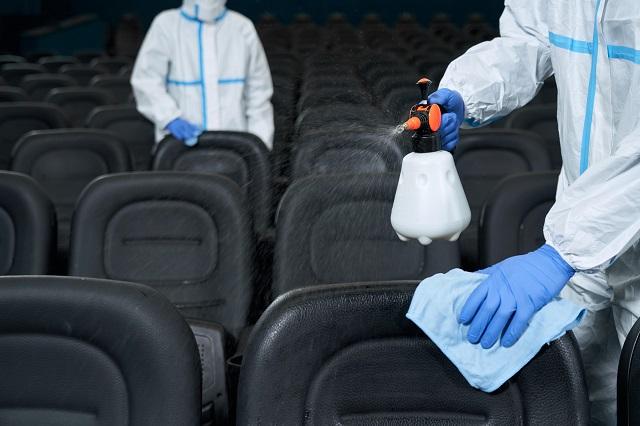How to make the best choice of one disinfectant for your establishment?
The virus causing the COVID-19 pandemic is capable of attaching to surfaces. It is possible for people to become infected if they touch these surfaces and then touch their nose, mouth or eyes. In most situations, the risk of infection from surface contact is low. The safest way to prevent infection from surfaces is to wash your hands regularly with soap and water or use an alcohol-based hand sanitizer. TheCleaning surfacescan also reduce the risk of infection.
Why disinfect?
Almost every environment on the planet contains bacteria and microorganisms. You may be surprised to learn that on one square inch of human skin, there are more than 600,000 bacteria. Most bacteria are harmless to humans. But organisms that cause disease – called pathogens – can be dangerous, even deadly. One of the most contagious and dangerous diseases in recent history is COVID-19, caused by the SARS-CoV-2 virus. The EN 14476 standard will apply to fight Covid-19.
Consistently using the right types of ‘virucidal’ disinfectants on surfaces in your facility is essential to preventing the spread of illnesses such as COVID, influenza (flu) and the common cold. As there are many types of disinfectants on the market, it is important to understand how they work in order to make an informed decision on how to best disinfect and protect the occupants of your establishment.
How do they work? disinfectants?
Disinfectants are chemical agents applied to non-living objects to destroy bacteria, viruses, fungi, mold or fungus living on these objects. By definition, the “active ingredient” in every disinfectant formula is what kills pathogens, usually by disrupting or damaging their cells. The active ingredients are generally assisted by other ingredients with varied objectives. For example, surfactants may be added to a disinfectant formula to ensure consistent wetting of a surface or to make cleaning easier.
What to Consider When Choosing Your Disinfectant
There are four main things to consider when choosing a disinfectant that will best meet the needs of your facility. By answering these questions, you will have a framework that will help you determine the best product(s) to use in your establishment.
1. Effectiveness
Does the disinfectant kill the microbes and pathogens that are of most concern in your establishment? For example, you may be very concerned about methicillin-resistant Staphylococcus aureus (MRSA). Some disinfectants are very effective against this bacteria. The effectiveness of a virucide against a pathogen is defined by European standards which are in the form EN XXXX.
AFNOR makes it possible to lead and coordinate the development of standards and to approve the standards.
Remember that pathogens can have multiple strains, and disinfectants are certified for specific strains. Depending on your industry and type of establishment (healthcare, education, long-term care, hospitality), you will have different needs and requirements.
2. Kill Time
How quickly does a disinfectant product kill a specific pathogen? Does the product keep surfaces visibly damp in order to respect these destruction times? Again, disinfectant formulas are rated to kill specific pathogens within a given amount of time, and they must remain moist on a surface for the duration of their action. A duration of 30 seconds to 5 minutes is a typical action time. If a disinfectant needs 10 minutes, make sure it will actually stay wet for that long. Alcohol-based disinfectants may evaporate before the required contact time.
3. Safety
Is the product safe for people and for the surfaces on which it is applied? Some categories of disinfectants are toxic, some stain, others are corrosive, and still others have an undesirable odor. Check product toxicity and flammability ratings, as well as personal protective equipment recommendations for the disinfectants you apply. Make sure a disinfectant will not harm the surfaces it is intended for.
4. Ease of Use
Are the steps required to use a given disinfectant practical for your facility? Some applications require several steps which are not always feasible. Water hardness is a factor that can impact the effectiveness of some disinfection formulas.
Sorting through information on different types of disinfectants takes time, but it is an essential step to ensure you are making the best maintenance decision for your facility. Having the right products on hand and a solid plan to prevent illness and infection will save you effort and expense later, and provide greater peace of mind for you and your family. staff and visitors who pass through your doors.


